Introduction
In 2014, the murder of Michael Brown, Eric Garner, and many other Black people by law enforcement bring about widespread protest in cities across the country. Almost immediately, reports arose of increased surveillance of Black-led organizing and activism.
In early 2016, the organization Color of Change, approached Center for Constitutional Rights for assistance with a FOIA request. COC were directly connected to individuals and organizations that suspected they were being surveilled. The request would be directed to DHS and FBI regarding the surveillance of groups affiliated with the Movement for Black Lives who engaged in First Amendment-protected activities.
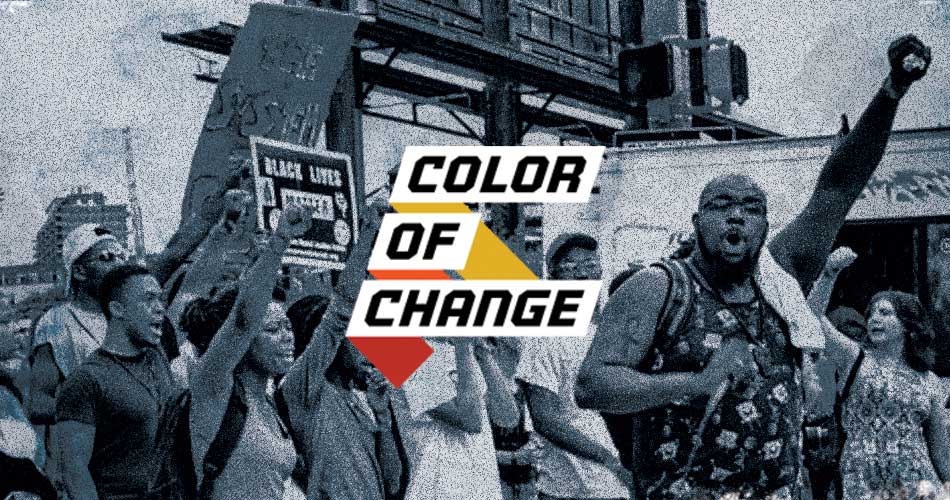
JULY 5, 2016: FOIA Request as an Advocacy Tool
COC and Center for Constitutional Rights file a joint FOIA Request seeking “policies and actions involving the monitoring and surveillance of public protests surrounding police violence, policing reform, racial justice, and the Black Lives Matter movement.”
The request itself cited both first-hand accounts of protesters along with numerous media coverage concerning protests and surveillance. It not only demanded information, but told a story of how activists and communities were being surveilled.
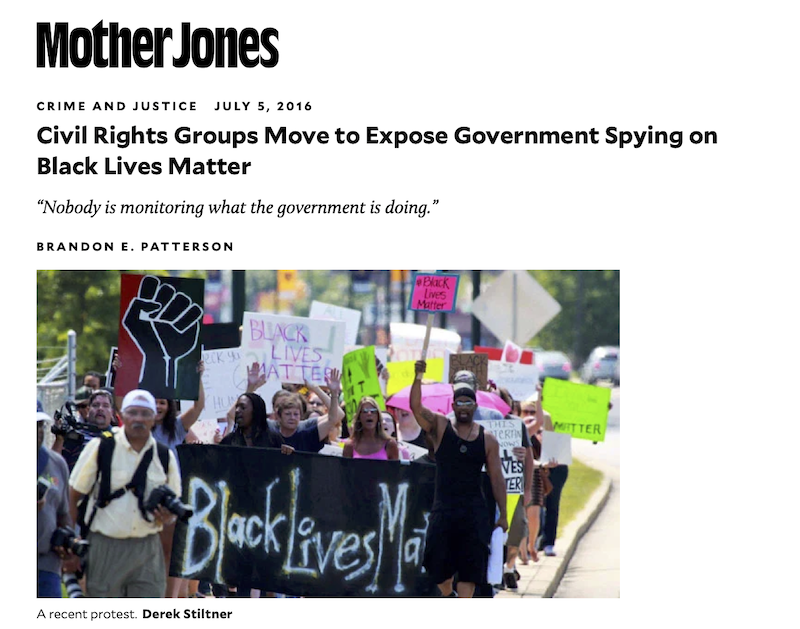
SUMMER 2016: FOIA Administrative Process
- July 5, 2016: FOIA Request sent to DHS and FBI.
DHS Response Timeline
- July 18, 2016: DHS sends letter to COC and Center for Constitutional Rights acknowledging the request. The letter denied our request for expedited processing, and conditionally granted our request for a fee waiver. DHS also requested a 10-day extension for making a determination on our request. DHS referred the request to four sub-components of DHS: the Federal Emergency Management Agency (FEMA), Federal Law Enforcement Training Center (FLETC), Office of Intelligence and Analysis (I&A) and National Protection and Programs Directorate (NPPD).
- August 23, 2016: COC and Center for Constitutional Rights administratively appeal DHS’s denial of expedited processing, and also DHS’s refusal to grant a full fee waiver.
- September 27, 2016: The DHS Office of Intelligence and Analysis responded to requesters, informing us they had done a search and found no records.
- October 10, 2016: COC and Center for Constitutional Rights administratively appeal the response from the Office of Intelligence and Analysis.
FBI Response Timeline
- July 28, 2016: The FBI sends a letter acknowledging the request, and granting expedited processing.
- September 20, 2016: Having heard no further response from the FBI since July, COC and Center for Constitutional Rights send letter to FBI asking for an update on their response.
OCTOBER 20, 2016: Lawsuit Filed With Coordinated Advocacy
 After receiving nothing from the FBI or DHS within the timeframe mandated by law, Color of Change and Center for Constitutional Rights file a lawsuit demanding documents. The filing coincided with the 50th anniversary of the founding of the Black Panther Party, showing the connection between past and present forms of government surveillance of Black activism and protest.
After receiving nothing from the FBI or DHS within the timeframe mandated by law, Color of Change and Center for Constitutional Rights file a lawsuit demanding documents. The filing coincided with the 50th anniversary of the founding of the Black Panther Party, showing the connection between past and present forms of government surveillance of Black activism and protest.
SPRING 2017: Judge Orders Government to Produce Documents
After several weeks of negotiations with government lawyers, COC and Center for Constitutional Rights went before a New York federal court judge and requested the agencies produce documents on a rolling basis. The judge granted our request and issued an order that FBI and DHS produce 1,000 pages of documents each month.
Over the spring and summer, review of documents is done in accordance with the goals of COC’s campaign – prioritizing publication and advocacy around anything regarding the surveillance of Black protest and activism.
FALL 2017: Publication of Key Documents
Review of the documents revealed some significant findings. Key documents showing not only surveillance but the criminalization of Black First Amendment-protected activity are published in Al-Jazeera and elsewhere.
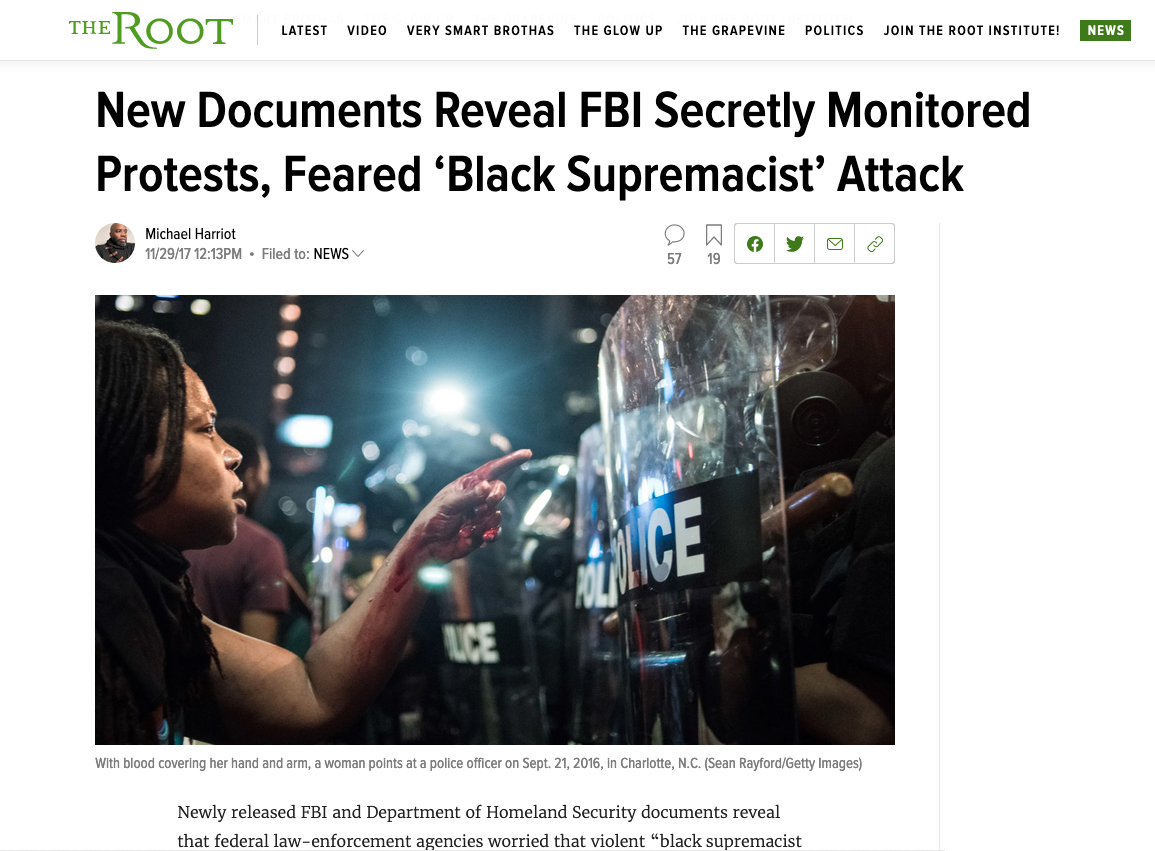
LATE 2017: FBI and DHS Finished Their Document Productions
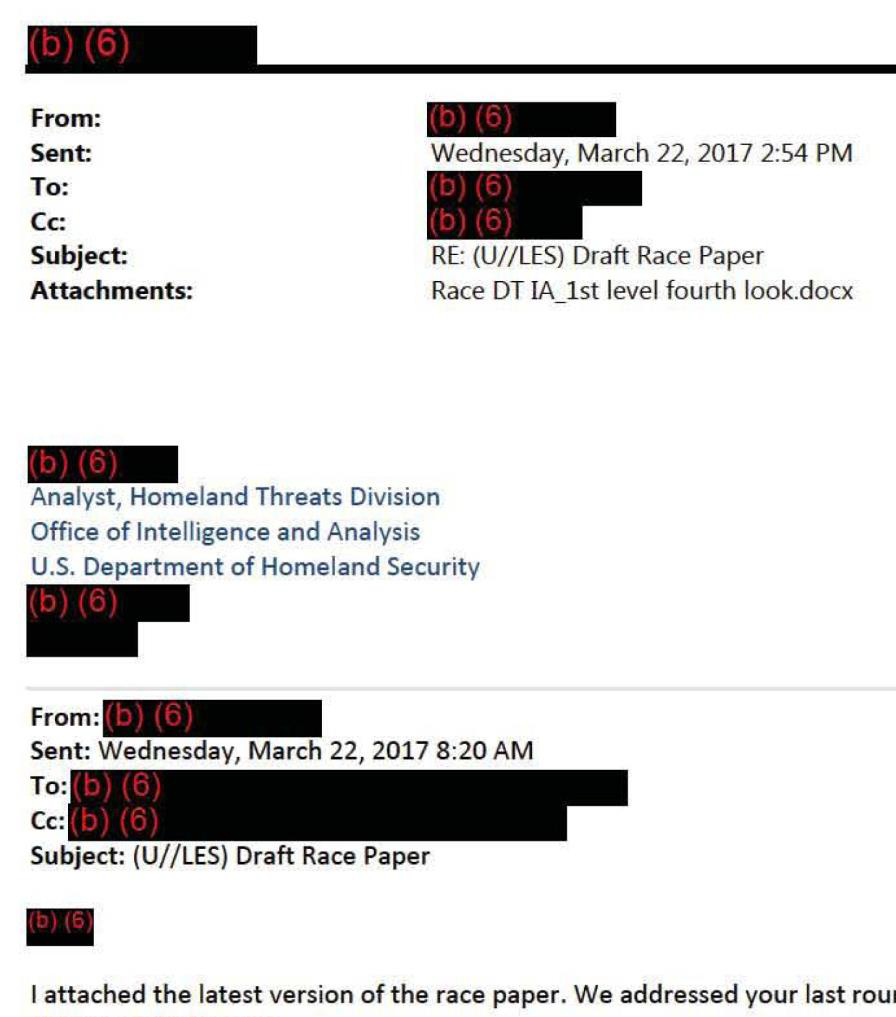
COC and Center for Constitutional Rights reviewed the remaining documents and found several emails referencing a DHS memo titled the “Race Paper.” The memo itself was entirely redacted. COC and Center for Constitutional Rights decided to target litigation around challenging DHS’s redactions on the “Race Paper” to reveal more about the memo, especially in light of the leaked FBI memo on supposed “Black Identity Extremists” to the magazine Foreign Policy.
SPRING 2018: COC and Center for Constitutional Rights Go to Court to Uncover the “Race Paper” Memo
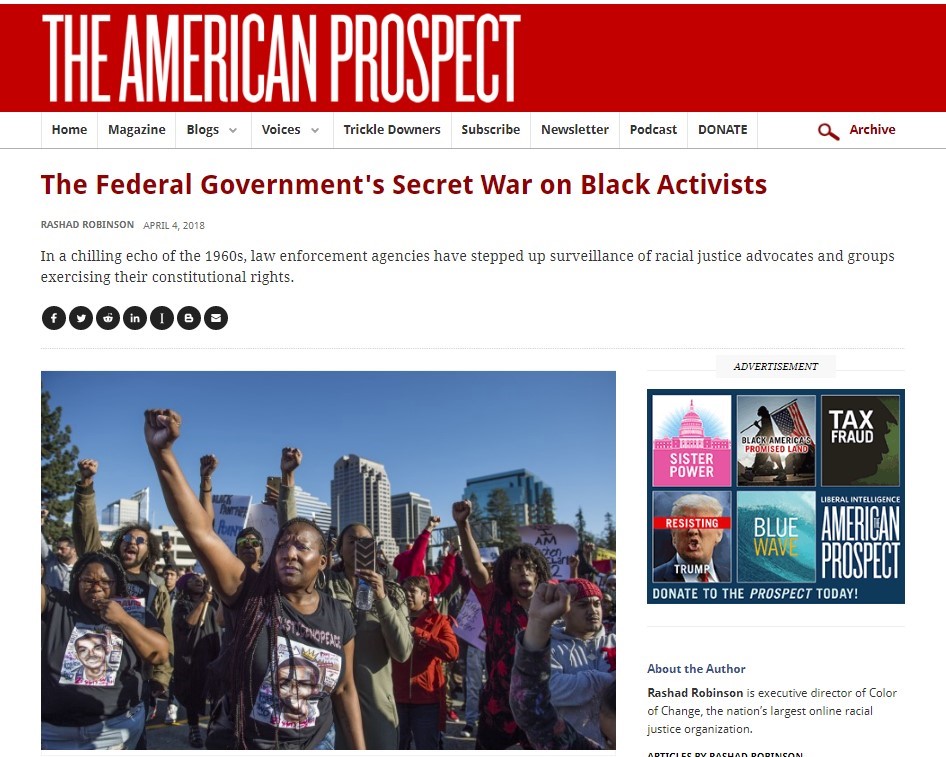
In March 2018, COC and Center for Constitutional Rights filed court papers asking the court to un-redact the “Race Paper.” At the same time, COC did broad media and advocacy work to create public pressure around the release of the memo. Media attention and advocacy continued through the next few months, especially when the court issued an opinion that they would do an “in-camera review” of the memo. This means the judge gets to review an unredacted version of the memo before making his decision whether or not to release it.
JULY 2018: Race Paper Not Released, Legal Case Ends
The judge issues a decision not to release any part of the “Race Paper,” ruling that it is a draft document and therefore protected under FOIA’s b(5) exemption , which allows the government to redact “deliberative” information. The legal case technically ends in late fall of 2018. However, this does not stop Color of Change, other organizations and journalists from pushing for the release of the memo.
EARLY 2019: Congress Inquires About “Race Paper”
With a newly elected group of representatives, the House convenes several hearings on domestic terrorism and surveillance. The advocacy and media exposure of our FOIA yields results as both Rep. Donald Payne and Rep. Ayanna Pressley ask administration officials about the “Race Paper” in public hearings.

New Jersey Representative Donald Payne Jr. holds up redacted copies of the DHS “race paper” during a Congressional hearing on domestic terrorism.
Key Outcomes
- Documents were revealed that showed the surveillance of Black activists by DHS and the FBI, and reinforced a law enforcement narrative that broadly criminalizes Black protestors.
- While COC and CCR did not get the final legal “win,” our advocacy created broad media coverage which influenced public discourse on the surveillance and targeting of Black activism
- Contributed to the organizing against surveillance of Black activists and communities by FBI and DHS
- Congress took notice and brought up the “Race Paper” in multiple hearings